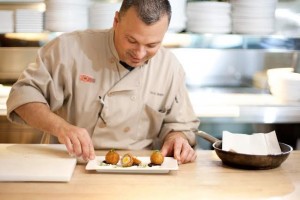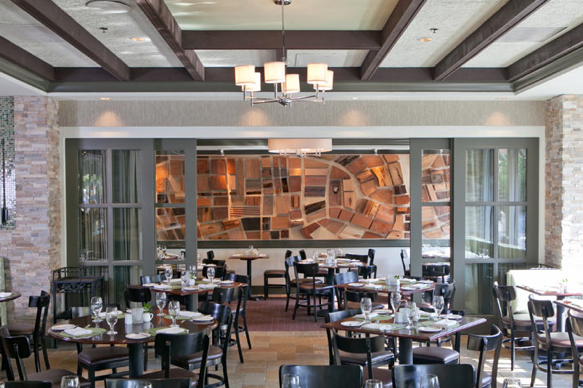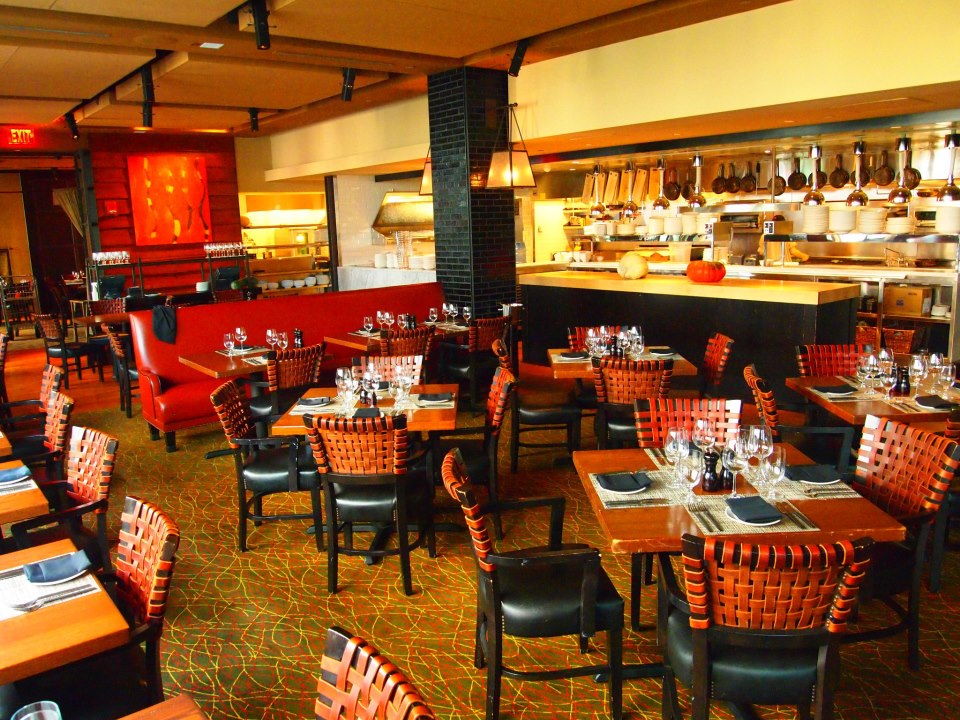This year, Bostonians said farewell to Restaurant Week and hello to its rebranded (and renamed) counterpart, Dine Out Boston. After more than a decade, the semi-annual Restaurant Week, put on by the Greater Boston Convention & Visitors Bureau (GBCVB), was starting to lose its appeal. The once celebrated occasion, which was intended to boost restaurant’s businesses during the slower months, had grown stale with Boston diners.
Or as Pamela Frechette, director of visitor marketing for the GBCVB, told BostInno, Restaurant Week was simply “waning.”
Frechette pointed out that the event was competing with Living Social and Groupon deals. “Everyone’s got a deal every night of the week here,” she explains. “So we thought, let’s do a spin on the concept and rebrand to give chefs the freedom and flexibility to shine and stand out.”
But despite the rebranding of Restaurant Week to Dine Out Boston, some of the Hub’s restaurants aren’t choosing to participate this time around. In terms of numbers, Frechette informs us that this current Dine Out Boston (August 2014) includes about 172 participating restaurants. This past March, Dine Out Boston had around 180 participating restaurants.
That’s less than the last “waning” Restaurant Week in 2013, which had 194 restaurants opting to partake.

While these numbers seem to be trending in the wrong direction, there are other factors to consider – like timing – that can cause a flux in participant numbers. Eric Brennan, executive chef at Post 390 (a Dine Out Boston participant), tells us that August tends to be a slower month for his Back Bay restaurant, with Dine Out Boston providing a much-needed boost in business.
“In August and July, everyone is on vacation,” Brennan tells us. “But Dine Out Boston helps pick up an extra 100 people per day and helps our restaurant gain traffic during the summer months.”
Jack Bardy, co-owner of the The Beehive and Beat Hotel, also claims that Dine Out Boston is still helping his restaurants succeed. Bardy tells BostInno, “The transition from Restaurant Week to Dine Out Boston has been a smooth one for us and we’ve seen much of the same turnout.”
However, on the other side of the spectrum, Brennan points out that “Boston’s waterfront restaurants aren’t going to implement Dine Out Boston in August because that’s their busy season anyway.”
Some waterfront restaurants, though, like chef and owner Bill Brodsky’s City Landing, won’t choose to participate in Dine Out Boston at all. Brodsky explains to BostInno that it’s not something he feels pressured to be a part of. “There is a membership fee that restaurants must pay to be a part of the GBCVB – and for the little guy like me you have to scrutinize every penny,” he adds.
That “fee” he refers to is a $925 annual GBCVB membership fee, which restaurants must pay to become a member of the overall organization. Once a restaurant is a member, they can receive additional services and benefits, Frechette points out. In order to participate in Dine Out Boston, the member restaurants must also donate two $100 gift certificates to the organization – one is used for promotional events and the other is given to a charitable partner.

Brodsky does note that “If you want to bring a lot of people to your restaurant then Dine Out Boston is a great idea – especially if you’re priced out of what they’re offering.” But, he adds that since his restaurant’s prices are “already in that Dine Out Boston range,” it just doesn’t quite “fit the model.”
Pastoral’s chef and owner, Todd Winer, agrees, claiming that his customers don’t need Dine Out Boston to afford a great meal at his Fort Point restaurant. “You can come to Pastoral and order three courses here for $35 but gear the menu however you like to dine,” he tells us. “People don’t want to be told how to eat in this day and age.”
But Frechette of the GBCVB insists that chefs simply aren’t taking advantage of the new Dine Out Boston guidelines, which now lets restaurants offer lunch and dinner at three different price points. “Before you had to do two or three courses, and now you can do whatever you want,” she adds. “ I don’t think enough chefs are taking advantage of the creativity and flexibility of the program. There’s no coloring outside the lines,” Frechette adds.
Instead, many Boston restaurants and chefs are choosing to implement their own version of Dine Out Boston. For instance, Barbara Lynch restaurants all offer a Dine Out Boston alternative dubbed Taste of the Gruppo Tour. Chef Bill Brodsky is also serving up his own version of the program. But while restaurant participation in Dine Out Boston may be waning, these alternatives make it clear that the spirit of Restaurant Week is still very much alive.
Brodsky tells BostInno that whether it’s Dine Out Boston or a different version, “it’s all about celebrating restaurants, offering a discount and letting people try new places that they normally wouldn’t go.”
Images via Facebook and Post 390


